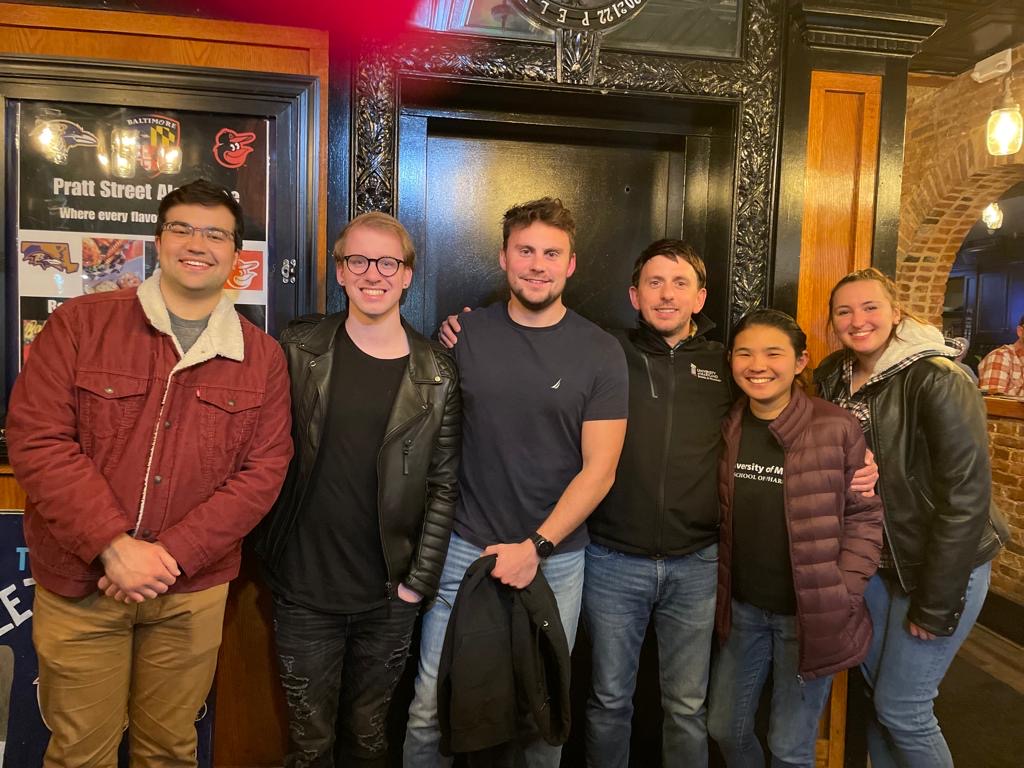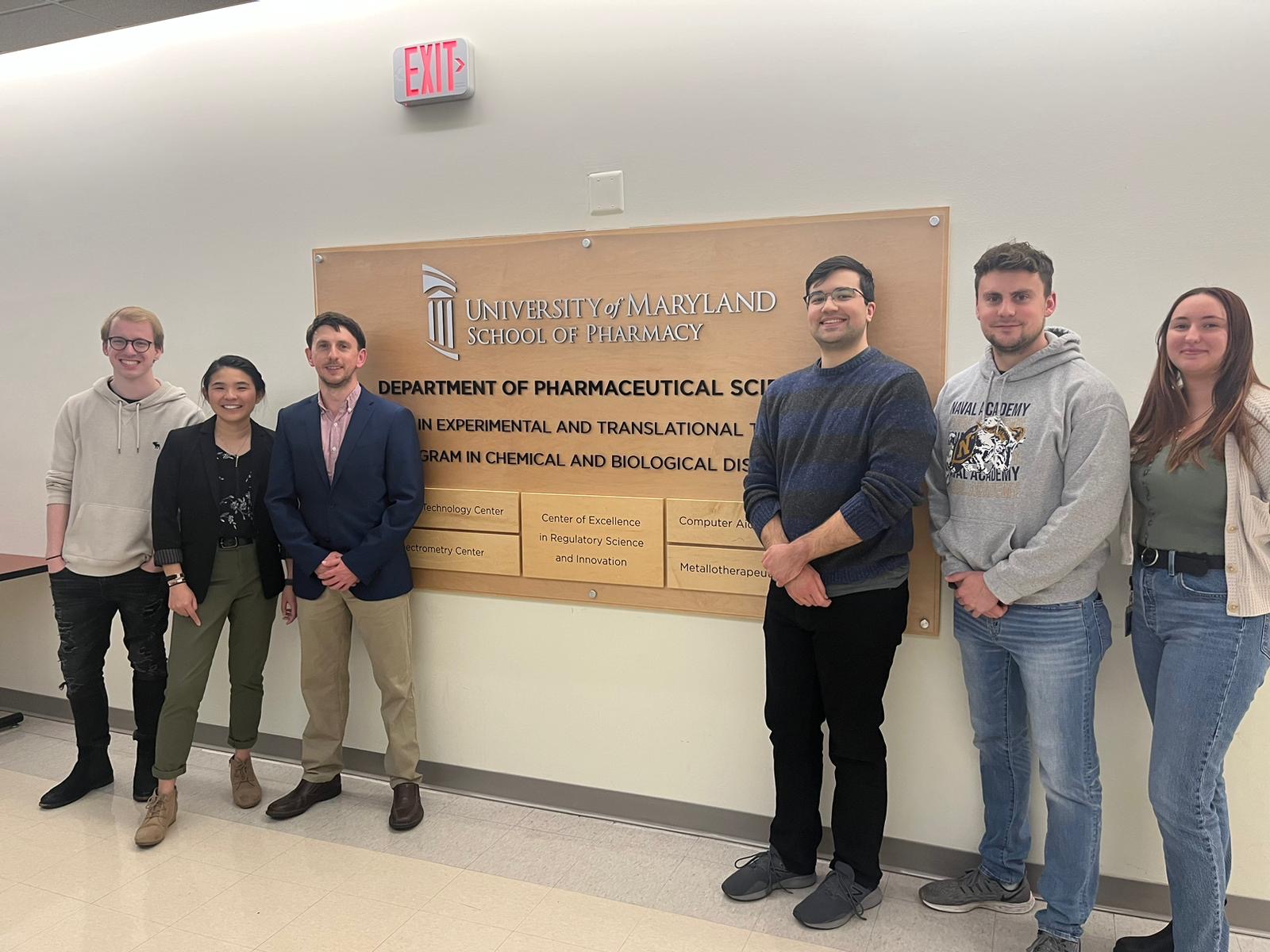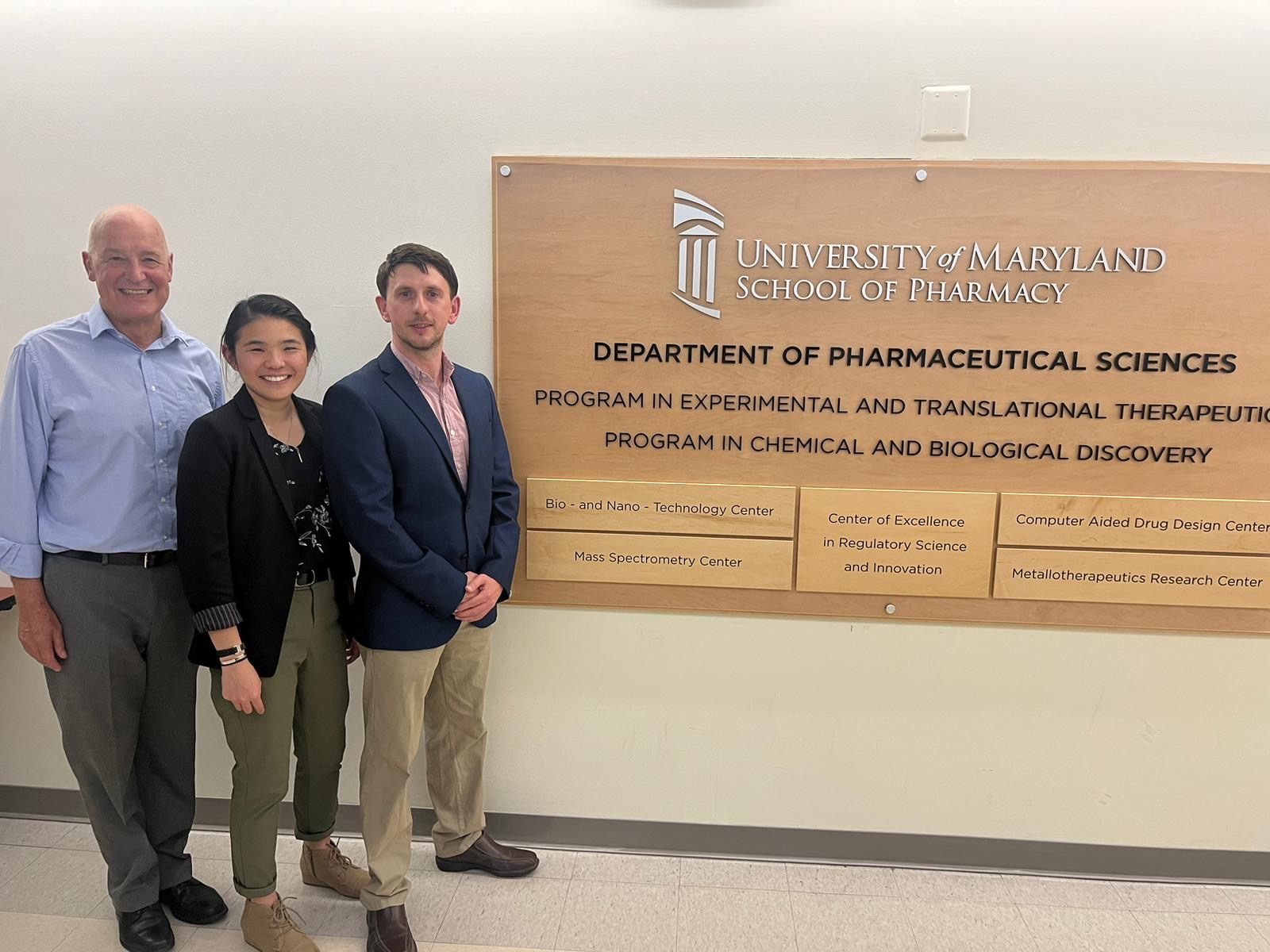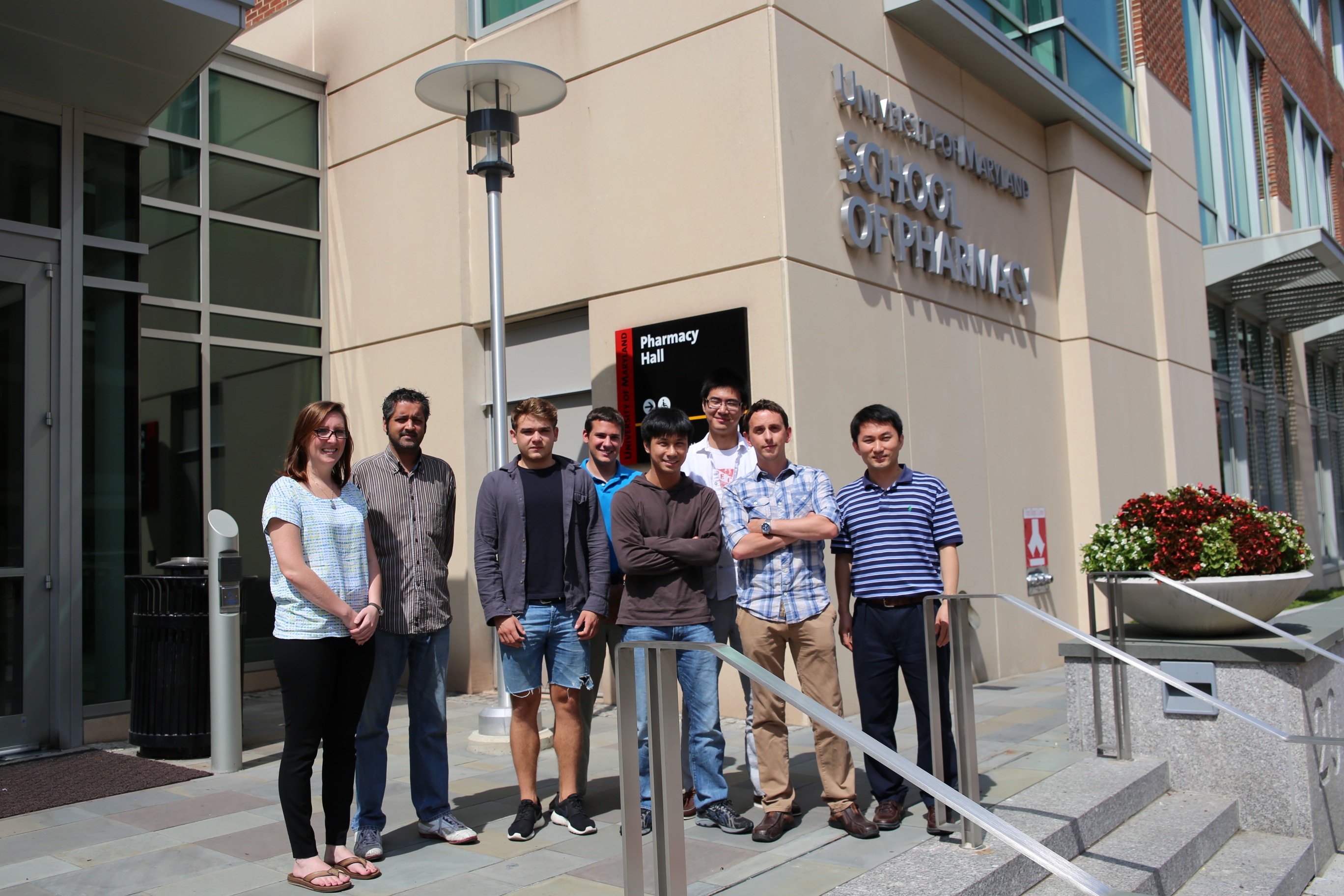November 2023: Wishing Bon Voyage to Dr. Alex Chan!
Group Photo Fall 2023
November 2023 – PhD Defense Day!!! Congratulations to Dr. Alex Chan!
Spring 2012 – just completed the move to Pharmacy Hall!
Current Lab Members
Chris Goodis (G5) – Development of inhibitors of BFL-1, FLT3, and PROTACs of BCL-2.
Brandon Lowe (G3) – Development of inhibitors of hnRNPA18 and histone deacetylase-8 (HDAC8)
Sarah Pogash (P2) – Development of Protein-Protein Interaction Inhibitors of ERK and P38 MAP Kinases.
Logan Badeau (G1, Rotation Student) – FLT3 Inhibitors.
Former Lab Members
Dr. Alex Chan (2017 – 2023)
Dr. Ivie Conlon (2015 – 2020)
Dr. Brandon Drennen (2013 – 2018)
Dr. Maryanna Lanning (2012 – 2017)
Dr. Lijia Chen (2011 – 2016)
Dr. Jeremy Yap (2010 – 2014)
Dr. Jay Chauhan
Dr. Mithun Raje
Dr. Kwan-Young Jeong
Dr. Shilpa Worlikar
| Jeremy (Jerry) Yap Graduate Student Jerry graduated with a BS degree from the University of Maryland Baltimore County (UMBC) in June 2008. He worked on the development of synthetic alpha-helix mimetics to inhibit the oncoproteins Mcl-1 and Bcl-xL. Also, Jerry designed novel compounds to inhibit the assembly of the oncoprotein c-Myc into its transcriptionally active coiled coil heterodimer with its obligate partner Max. |
|
| Jamal (Jay) Chauhan Post-doctoral Research Associate Jay joined us from a post-doctoral position at the University of Minnesota after completing his PhD at the University of Bath (2004) in the UK. He developed beta-strand mimetics to disrupt protein-protein interactions involved in disease, particularly HIV-1 protease. |
|
| Kwan-Young Jeong Post-doctoral Research Associate Kwan-Young joined us from Johns Hopkins University after graduating with a PhD from Gwangsu Institute of Science & Technology (2009) in South Korea. As well as developing novel, synthetic alpha helix mimetics to disrupt protein-protein and protein-DNA interactions involved in disease, Kwan-Young prepared non-ATP-dependent small molecule inhibitors of extracellular signal-related kinase (ERK), which is hyperactivated in a large number of cancers. |
Sagar Shukla
PharmD Student
Shilpa Worlikar
Post-doctoral Research Associate








